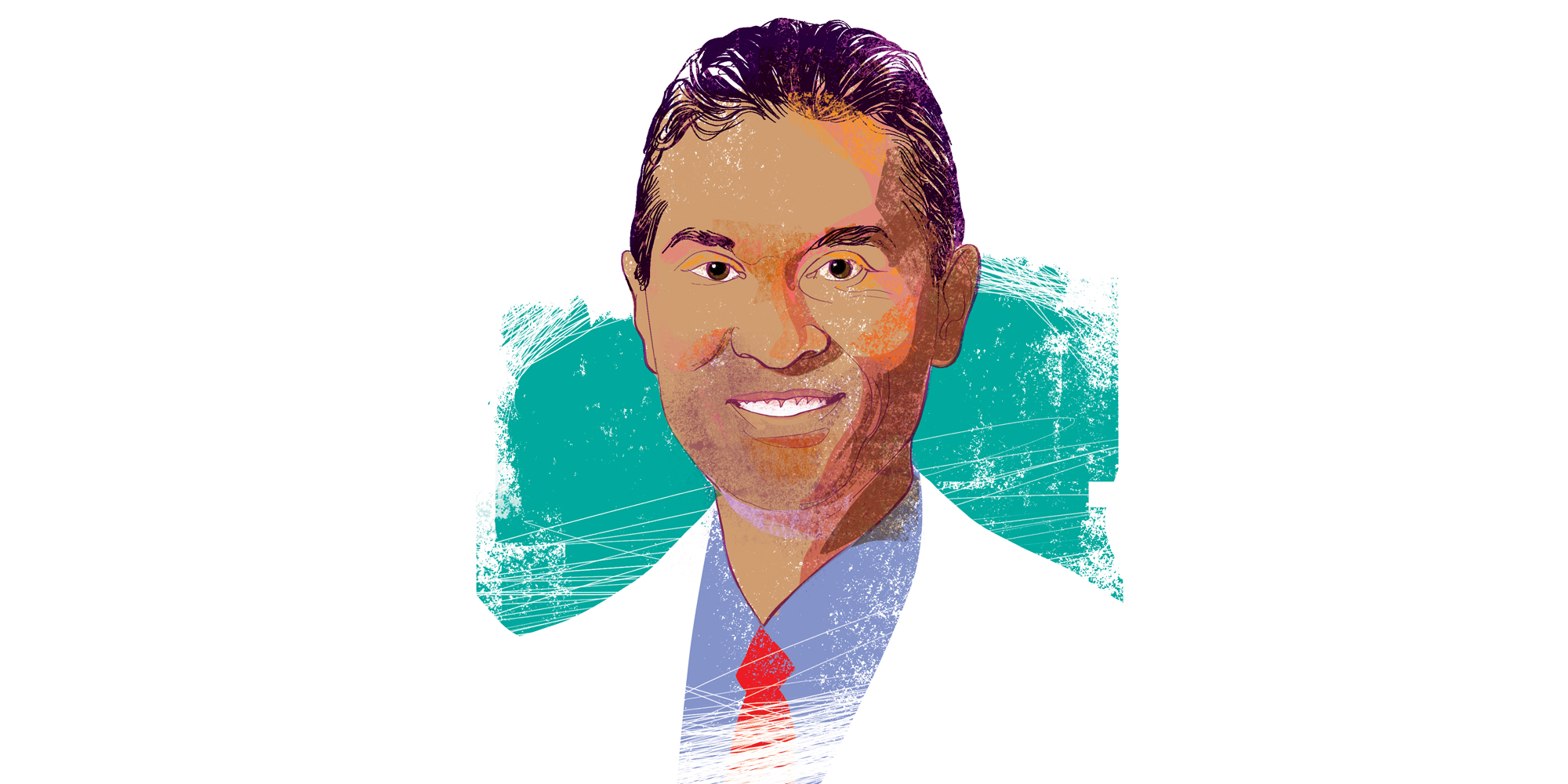
(Illustration by John Jay Cabuay)
Cardiac surgeon Valluvan Jeevanandam was part of a team that made medical history.
In December, a team at UChicago Medicine pulled off an unprecedented surgical feat, completing two triple-organ transplants in the same 27-hour period. The procedures transformed the lives of Sarah McPharlin and Daru Smith, who are both recovering well.
Liver surgeon Talia Baker, kidney surgeon Yolanda Becker, and heart surgeon Valluvan Jeevanandam performed the transplants. Jeevanandam went first. He’s been part of all six triple-transplants performed at UChicago—the most of any institution in the world—and has done about 1,500 heart transplants in total.
Even for an experienced transplant surgeon, these two procedures were demanding—like “doing two marathons back-to-back,” says Jeevanandam, the chief of cardiac surgery. His comments below have been edited and condensed.
Why did you become a surgeon?
In medical school I was interested in all aspects of medicine, but with surgery you get immediate gratification, in that you create or fix something and get an immediate result. I do a lot of woodwork and carpentry, so I’ve always been fascinated by the products of my hands. That’s what drew me to surgery.
When I was eight years old, my grandfather died in India while we watched. At that time people didn’t know about CPR. They didn’t know about how to resuscitate people. That gave me a fascination with treating heart disease as well.
Beyond transplants, what kinds of surgeries do you perform?
I do what we call heart failure surgery. Some of that is transplant, some of it is mechanical assist devices. The vast majority is valve work and bypass work that we do with patients who have very poor function. We’re recreating and trying to resurrect their heart.
When I became the director of a heart transplant program, I quickly came to realize you couldn’t transplant everybody. There are people who have medical reasons they can’t be transplanted, psychosocial reasons—and the number one reason is there’s only about 3,000 hearts available in the United States each year. There are a lot more people who have heart disease.
You start developing techniques and ideas on how to make someone’s heart, maybe not perfect, but good enough that they can avoid a transplant.
What stands out about the triple transplants?
We started off with Daru and the heart transplant went well. Then we were able to hand off to the liver transplant team. But the heart team can’t go home until all the transplants get done in case there’s a problem. That’s a team of nurses, perfusionists, physician assistants, and anesthesiologists. There were people who were here for more than 40 hours straight.
Sarah was much more difficult from a heart perspective. She was turned down by multiple surgeons, because they said she was too high-risk. When I first heard about her, on paper, it looked like something we just couldn’t accomplish. But the second we saw Sarah, and we saw her energy, her personality, it drove us to say, “No matter what, we have to help her.”
Her previous surgeon was instrumental in guiding me through her surgery. He sent me an email saying, “May God bless you and your skill in pulling this off.” I thought, when a surgeon starts invoking a higher power, he must know something I don’t.
What is unusual about UChicago’s heart transplant program?
We not only do extraordinarily high-risk cases but we also have extraordinarily good outcomes. Our survival rate includes the high-risk population, the multiple-organ patient population, and we’re one of the very few programs in the world that take Jehovah’s Witnesses, who will not accept blood transfusions. We have to be pretty confident of our surgical skills to be able to pull that off.
We have a really dedicated program. There’s never a question that if there’s a donor for a recipient, that recipient is going to get the organ, no matter how many hoops we need to go through.
